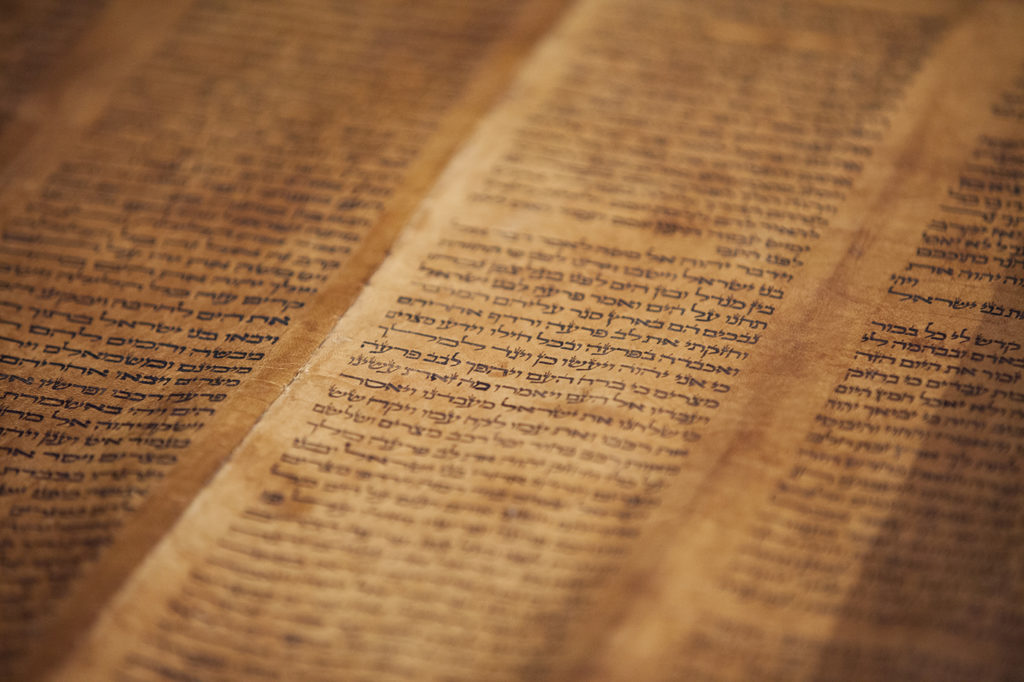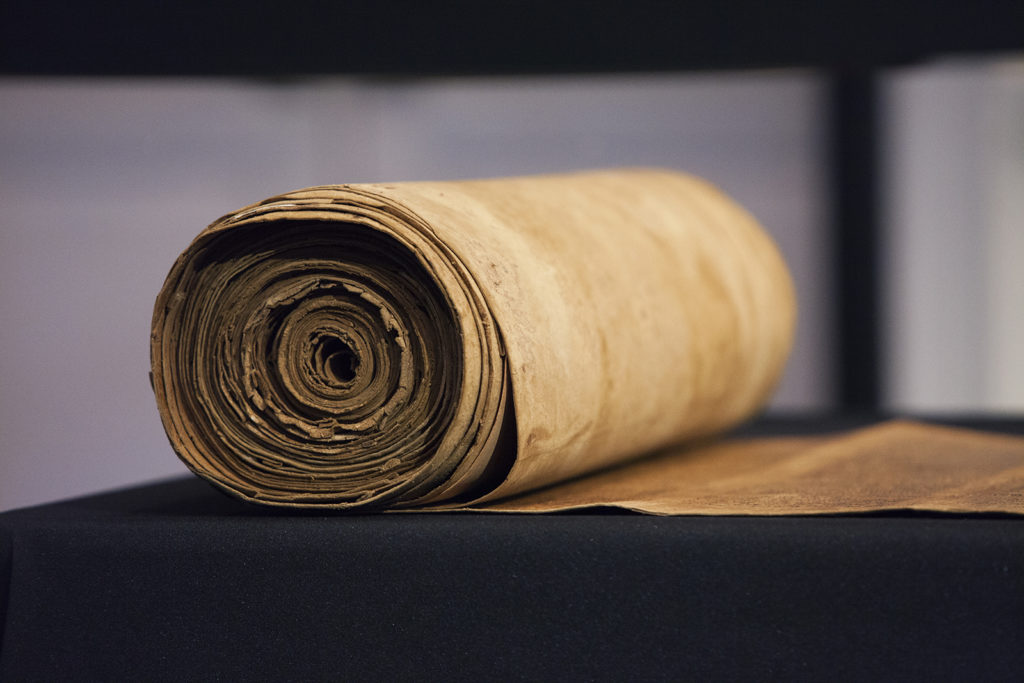Even today, Ken and Barbara Larson aren’t exactly sure how it happened. The events lined up just perfectly, one supposedly chance encounter after another. They went from founding and running a successful family business to, nearly 50 years later, becoming major donors at almost 30 seminaries. For the last three years, they have been donating scrolls of the Hebrew Torah — some of the most invaluable and insightful living testimonies to the resiliency of God’s Word.
“I think it’s very difficult for seminaries to acquire manuscripts such as this,” Ken said. “There is a long list of needs in seminaries and a Torah would probably be pretty far down the list. So, our ability to give them is just a privilege. We fill a gap that sometimes a school can’t fill.”
Ken founded a furniture company, Slumberland, Inc., when the couple was in their 20s. They met at St. Paul Bible College in St. Paul, Minnesota, and have been involved in numerous ministries throughout their marriage. Ken has served on boards for numerous nonprofit organizations and currently leads a monthly class on applying biblical principles to the business world. Barbara has taught women’s Bible studies for more than 40 years and was involved with Bible Study Fellowship for several years.
There is a long list of needs in seminaries and a Torah would probably be pretty far down the list. So, our ability to give them is just a privilege.
But their most far-reaching ministry only developed in the last few years, and extended to Southern Seminary on Sept. 1 when they donated a complete scroll of the Torah, the first five books of the Old Testament. The scroll, made out of unblemished calfskin and measuring at 106 feet fully unrolled, comes from southern Italy around the 16th or 17th century.
Three years before, they attended a community event near their home in Florida featuring Josh McDowell, Christian apologist and speaker, who asked that the community pray that he would find a couple willing to travel to Tajikistan with him on short notice. The Larsons, who travel overseas frequently, felt a strong call to volunteer.
 They had rushed home, grabbed their visas, and purchased their tickets when McDowell called to inform them the trip was canceled for reasons beyond their control. Six months later, they went with McDowell on a substitute trip to South Korea, where the apologist brought up what he calls one of his most valuable tools for defending the reliability of the Bible: an old Polish Torah, used centuries before by a Jewish community. The scribes take painstaking care of the text of the Torah, regularly correcting any errors that emerge, no matter how small, always updating and improving it as a community.
They had rushed home, grabbed their visas, and purchased their tickets when McDowell called to inform them the trip was canceled for reasons beyond their control. Six months later, they went with McDowell on a substitute trip to South Korea, where the apologist brought up what he calls one of his most valuable tools for defending the reliability of the Bible: an old Polish Torah, used centuries before by a Jewish community. The scribes take painstaking care of the text of the Torah, regularly correcting any errors that emerge, no matter how small, always updating and improving it as a community.
If a scribe (called a sopher) notices a mistake in the lettering or the punctuation — which can often be as small as one dot in the Hebrew text — the Torah will not be used until it is corrected, and the community has 30 days to do so before the Torah is no longer considered sacrosanct.
The Larsons grew fascinated with the idea of owning an ancient Jewish scroll as McDowell told them how valuable such a detail-oriented ancient text can be for apologetics. If the Hebrew Bible was kept with such rigorous accuracy, how more meaningful does the New Testament become — the teaching that fulfills every jot and tittle of the Old Testament?
As the Larsons became serious about acquiring a Torah, McDowell introduced them to Scott Carroll, a biblical scholar who studies ancient manuscripts and built the Van Kampen Collection and the Green Collection, the two largest privately held collections of biblical materials in the world. Through Carroll, who travels with them to each institution explaining the history of each scroll, the Larsons purchased a couple Torahs before a family trip to Israel they had already planned. Their first Torah donation was to Bethel Seminary in St. Paul, Minnesota, and numerous institutional donations followed.
“We just want to be convinced that the institution has a high view of God’s Word,” Ken said of their decision to donate Torahs to evangelical seminaries. “There are so many places we could give scrolls to, but that conviction is just the way we’re wired.”
A donation to The Master’s Seminary in Sun Valley, California, sticks out in Ken’s mind, as the students lined up to look at the 40-foot scroll and left wiping tears from their eyes. “They were just glued to it,” Ken said.

Viewing the Bible in manuscript form is a special privilege, said R. Albert Mohler Jr. during the Sept. 1 chapel, adding it had an “immediate magnetic draw” among the students. The up-close, intimate experience with the scroll is unique.
“All these Torahs are museum-quality and most of the time they’re not displayed like we display them,” Barbara said. “They’re often under glass, and you have to wear white gloves to even get near them. So it’s a unique privilege for each seminary to experience the Torah, to be able to study from it, and use it.”
The Larsons continued to purchase Torahs and have now acquired 50 of them, most of which they intend to give to evangelical seminaries. The donation to Southern Seminary is their 27th, and their journey to this point — from starting a furniture company to discussing Torah scrolls in Mohler’s house — is just as incredible to them as ever. And they use their story to encourage others to embrace God’s plan through their decisions.
“We said yes to God to go to Tajikistan, but we never got there. All the things that are happening now with the Torahs would have never happened without that ‘yes,’” Barbara said. “So that’s the message we’re trying to get across. Seminary students who may say ‘yes’ to God to come here, that ‘yes’ may lead you to something totally different than you thought.”
———
Andrew J.W. Smith is a news writer for Southern Seminary




